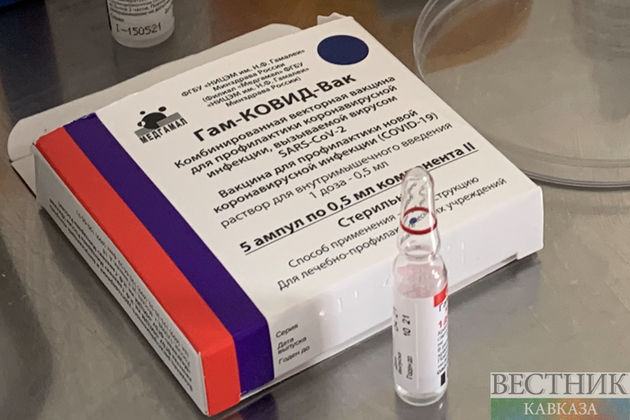Preliminary results from an additional study of the Sputnik V vaccine have shown that inoculated volunteers retained a fairly high level of antibodies one year after the first jab, the Moscow mayor's official website reported on Thursday.
"Last December, we decided to extend the Sputnik V vaccine study to further evaluate the safety and immunogenicity of the vaccine 12 months after the first jab. The first results of the antibody level analysis show a sufficiently high level of specific IgG antibodies to the coronavirus S-protein in all the jabbed volunteers after vaccination at the time of the additional study. So, today there are results for 1,323 participants out of 3,000. This is a sample of 44% of the participants. Of these, 80% of them have antibodies higher than 200 BAU, which is considered high enough," Moscow Deputy Mayor for Social Development Anastasia Rakova said.
The report specifies that volunteers who were invited to participate in an additional study were selected randomly from 19 clinics - centers for clinical study of the Sputnik V vaccine. They were given the Sputnik V vaccine, not a placebo. They were supposed to get the first jab a year ago either a month earlier or later. Volunteers were asked to give blood once to assess immunogenicity, that is the ability to produce antibodies against the virus.
BAU is a unit of measurement for binding antibodies. The use of such an international standard of measurement was approved by the World Health Organization (WHO) in the summer of 2021.






